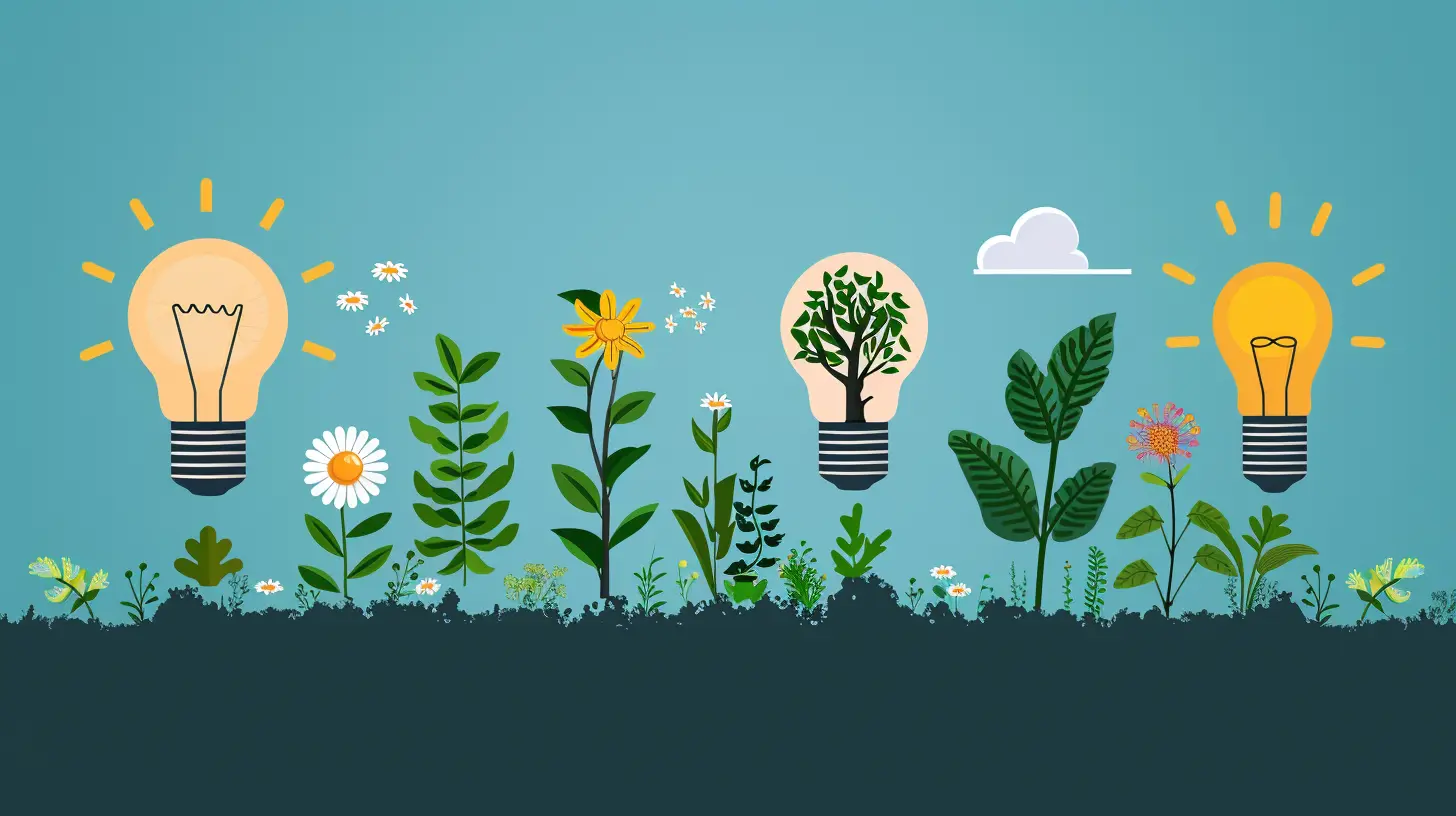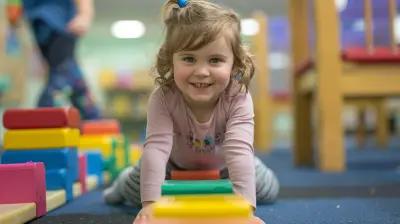The Impact of Growth Mindset on Academic Achievement
16 July 2025
We’ve all had those moments where we stare at a textbook and think, “I’m just not a math person,” or “My brain isn’t wired for science.” Sound familiar? Well, turns out, those thoughts aren’t just self-critical—they’re self-limiting. What if I told you that simply believing you can improve might actually help you improve? That’s where growth mindset struts in like the superhero of learning.
In this article, we’re diving headfirst into how a growth mindset can shake things up in the world of academic achievement. So, buckle up! It's going to be an enlightening (and hopefully entertaining) ride.
What Exactly Is a Growth Mindset?
Before we jump to the juicy stuff, let’s clear the air—what is a growth mindset, anyway?Coined by psychologist Carol Dweck, the term "growth mindset" refers to the belief that abilities and intelligence can be developed through effort, learning, and persistence. It’s the opposite of a fixed mindset, which believes that intelligence is static and unchangeable.
Think of it like this: Fixed mindset says, “I’m terrible at this.” Growth mindset says, “I’m not great yet, but with effort, I can get better.”
Simple distinction, massive impact.
The Brain is a Muscle—Kinda
Okay, maybe not a literal muscle, but it behaves a lot like one. The more you challenge your brain, the stronger it gets. Just like you wouldn’t expect to lift 200 pounds on your first day at the gym, you shouldn’t expect to master calculus overnight. Growth takes time, and that’s perfectly fine!Students with a growth mindset see failure as a stepping stone, not a brick wall. When they stumble academically, they don’t throw in the towel—they tighten their laces and try again. That resilience is what sets them apart.
So, How Does Growth Mindset Affect Academic Achievement?
Let’s get to the heart of it. Why should you—or your students—care about adopting a growth mindset?1. 🌟 Increased Motivation
Tell me if this sounds familiar: You study hard for a test, bomb it, and immediately think, “Why bother?” That’s the fixed mindset talking.But someone with a growth mindset? They might feel disappointed, sure, but they're more likely to think, “Alright, what went wrong, and how can I do better next time?”
That shift in perspective keeps motivation alive. And motivation is the fuel that drives academic performance.
2. ✍️ Better Learning Strategies
When you believe you can improve, you actively look for ways to improve. Growth-minded students are more likely to try out different study techniques, seek help, and reframe challenges as opportunities.It’s like being a detective in your own learning process—always searching for clues to crack the case (or acing that next exam).
3. 🧠 Deeper Engagement with Material
Instead of memorizing facts just to pass a test, growth-minded learners aim to understand the “why” behind concepts. And guess what? That deeper understanding leads to better long-term retention and higher academic performance.Give a person a fish, and they’ll eat for a day. Teach them why the fish is thriving in its environment, and they’ll write a whole report on marine biology.
4. 🛡️ Resilience to Setbacks
Setbacks are inevitable. But the ability to bounce back? That’s where growth mindset shines.Students who view failure as feedback instead of a dead-end develop a kind of academic armor. They don’t crumble under pressure; they adapt, learn, and persist. And in the world of education, persistence is gold.
Growth Mindset in Action: Real-Life Examples
Theory is all good and well, but let’s bring it down to earth with some real-life scenarios.Meet Sarah, the Struggling Math Student
Sarah used to dread math. She thought she just wasn’t “built” for numbers. Every bad grade confirmed that belief.But one day, her teacher introduced growth mindset concepts. Sarah started changing her inner dialogue from “I can’t do this,” to “I can’t do this yet.” She began asking more questions, practicing daily, and celebrating small victories.
By the end of the semester? She didn’t just pass—she aced her final exam. All because she stopped telling herself she couldn’t.
Or Take James, the History Buff
James loved history but struggled with writing essays. Instead of giving up, he sought feedback, rewrote drafts, and treated each comment as a learning tool rather than criticism.That shift helped him go from Cs to As in just two semesters. His mindset was the game-changer.
Can Teachers Cultivate a Growth Mindset?
Oh, absolutely. In fact, teachers are kind of like the gardeners planting the seed of growth mindset in the first place.Here’s how they can do it:
- Praise Effort, Not Just Results: Saying “You worked so hard on this!” instead of “You’re so smart!” reinforces the value of effort.
- Normalize Mistakes: Make errors a regular part of the classroom. After all, nobody nails everything on the first try.
- Model a Growth Mindset: Teachers who admit when they don’t know something—and show how they learn—are walking, talking examples.
- Encourage Reflection: Ask students what they learned from a challenge, not just what grade they got.
What About Parents?
Parents play a huge role, too. A home that values curiosity over perfection nurtures students who feel safe to try, fail, and try again.Simple ways parents can support growth mindset:
- Use the word “yet.” (“You haven’t mastered multiplication yet.”)
- Celebrate effort and persistence.
- Share stories about their own struggles and how they overcame them.
- Avoid labeling their kids (“You’re a math whiz!” can backfire when things get tough).
Growth Mindset Isn’t a Magic Wand (But It’s Close)
Now, before you go thinking growth mindset is some kind of academic fairy dust that guarantees straight A’s—let’s pump the brakes.A growth mindset isn’t about being overly positive or ignoring real struggles. It’s about embracing the process, trusting in your potential to improve, and putting in the work. It’s not magic, but it makes learning feel a heck of a lot more possible.
The Science Behind It
If you love a good research stat, here’s one: Studies have shown that students with a growth mindset perform better academically, especially in challenging subjects.In one notable study, students who were taught about growth mindset showed significant improvement in grades compared to students who weren’t. Their belief in their ability to grow translated directly to real academic gains.
So yes, there’s actual brainy brain science behind all this chatter.
Growth Mindset in Different Age Groups
Let’s not assume growth mindset is just a high school thing. It works its magic at all levels of education.- Elementary School: Helps kids build confidence early, when self-doubt hasn’t fully planted its roots.
- Middle School: Crucial during those awkward, “I don’t want to look stupid” years.
- High School: Great for managing academic pressure and shaping lifelong learning habits.
- College & Beyond: Encourages independence and resilience in self-directed learning environments.
Basically, it’s like a Swiss Army knife for education: relevant, useful, and transformative at every stage.
Final Thoughts: Growth Mindset is a Lifelong Skill
Here’s the deal—growth mindset doesn’t stop the moment you toss your graduation cap in the air. It’s not just a school thing; it’s a life thing.Whether you’re learning how to parallel park, picking up guitar at 40, or baking your first sourdough (been there), having a mindset that embraces learning, effort, and persistence will always serve you well.
So, the next time you—or someone you know—feels stuck in a learning rut, just remember: It’s not that you’re bad at it. You’re just not there yet.
TL;DR? Here's the Bite-Sized Version:
- A growth mindset = believing you can improve with effort and learning.- It boosts motivation, resilience, problem-solving, and academic achievement.
- Teachers, parents, and students can all nurture a growth mindset.
- It’s not magic—but it’s pretty close.
all images in this post were generated using AI tools
Category:
Growth MindsetAuthor:

Monica O`Neal
Discussion
rate this article
2 comments
Astra Pratt
Embracing a growth mindset empowers students to conquer challenges and unlock their true potential, transforming setbacks into stepping stones for academic excellence and lifelong success!
November 12, 2025 at 3:57 AM

Monica O`Neal
Thank you for your insightful comment! I completely agree—embracing a growth mindset is crucial for overcoming challenges and achieving lasting success in academics and beyond.
Calder Carter
Loved this article! Embracing a growth mindset really can transform our approach to learning and boost our success!
July 22, 2025 at 4:43 AM

Monica O`Neal
Thank you! I'm glad you found it valuable. Embracing a growth mindset truly makes a difference in learning and achievement!


